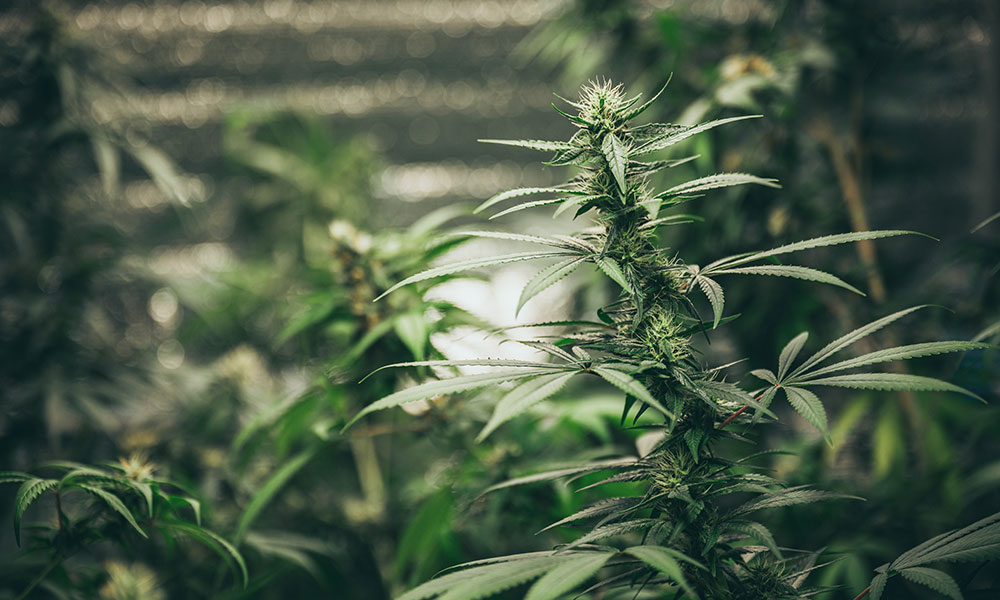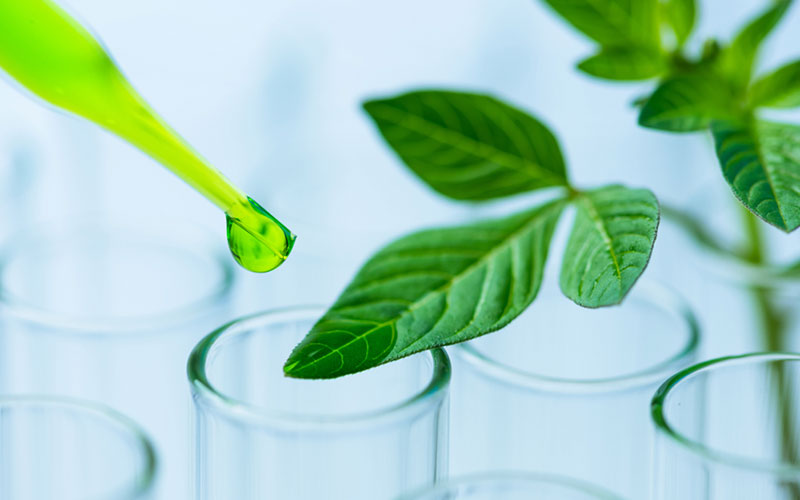
CBD, short for cannabidiol, is an active compound in cannabis sativa plants. Despite its increasing popularity in the wellness industry, there are still grey areas, including whether CBD shows up on a drug test. So, does CBD show up on a drug test?
CBD and THC (tetrahydrocannabinol) are two popular, active compounds in cannabis. While THC produces an intoxicating effect, CBD does not. These two compounds come from the same plant, so it’s fair to ask if they show up on drug tests.
In this article, you will learn how drug testing for CBD works and the different types of drug tests. We’ll also discuss how to use CBD products to avoid positive results.
CBD and Drug Testing
If you use CBD products, CBD should not show up on drug tests. So, the answer to does CBD oil show up on a drug test is No.
The substance that shows up in these tests is THC, the intoxicating compound in cannabis.
However, CBD originates from cannabis which contains different cannabinoids, including THC. Because of this, a CBD product can result in a positive drug test when you take one that has THC.
Although CBD is not the target substance during drug tests, THC is detectable. Some manufacturers claim their products are THC-free, but this isn’t always the case. You may find out the product has trace amounts of THC, and the company wrongly labeled the product.
Does CBD Oil Contain THC?
We have different types of CBD extracts, as we will explain later in this guide. Some CBD oil products, classified as full-spectrum CBD, contain THC. However, the THC is in trace amounts and not enough to produce intoxicating effects.
Full-spectrum CBD oils are the only types that have THC. Other CBD oil products should be THC-free. To check if the product contains THC, read the certificate of analysis and look at the cannabinoid profile.
Understanding the Different CBD Extracts
CBD comes from cannabis, a plant with hundreds of naturally occurring compounds, such as:
- Cannabinoid
- Flavonoids
- Terpenes
Marijuana and hemp plants are varieties of cannabis, and they both contain CBD and THC. However, these plants have different levels of THC. While marijuana contains high amounts of THC, hemp plants have only trace amounts.
Due to the differences in THC levels, most commercial CBD products are hemp-based. Hemp-derived CBD is legally required to have less than 0.3% THC.
CBD extracts fall into one of three classifications:
- Full-spectrum CBD
- Broad-spectrum CBD
- CBD Isolate
Full-spectrum CBD extracts contain all the naturally occurring compounds in cannabis, including cannabinoids, terpenes, and flavonoids. As a result, it also contains THC.
Hemp-derived full-spectrum CBD extracts have no more than 0.3 percent THC. On the other hand, marijuana-based CBD extracts may have varying amounts of THC.
Like full-spectrum CBD extracts, broad-spectrum contains additional compounds like cannabinoids and terpenes. However, broad-spectrum doesn’t have THC. In this extract, the manufacturer removes all the THC.
Lastly, CBD isolate doesn’t contain any more compounds from the plant except CBD. This type of extract is also known as pure CBD. People who want to experiment with only CBD choose CBD isolate.
How a CBD Drug Test Works
Generally, drug tests target the following compounds:
- Cocaine
- Cannabis
- Amphetamines
- Alcohol
- Opiates
- Benzodiazepines
One of the popular diagnostic tests for cannabis in a person’s system is the urine test. Also called an immunoassay test, it uses antibodies to identify specific drugs or the drug’s metabolites. Here, the urine test detects THC or its metabolites.
When the antibodies detect a drug, they show a signal which signifies the test as positive. The federal government sets the concentration levels for these drug tests.
Therefore, the result is negative if the test identifies a drug or its metabolites under the set threshold. False positives are also possible, which is why people usually go for follow-up tests.

CBD Drug Test vs. Screening
Although people use these two terms interchangeably, they mean different things. CBD drug screening is an instantaneous process. Employers use it when they want quick results.
On the other hand, drug tests involve taking samples to a lab for processing. The results can take up to a week, so it’s not a fast process. However, results from drug tests are more accurate compared to drug screening.
What are the Different Types of CBD Drug Tests?
There are different methods of drug testing. Each has its cut-off value. These tests screen for the drug or its metabolites.
For instance, a typical drug test will check for THC or THC-COOH, one of the many metabolites of THC. Below are the popular methods explained for better understanding.
Urine Tests
Urine tests are one of the most common drug testing methods, especially in the workplace. A positive test result occurs when the THC-COOH concentration in the sample is at least 50 nanograms per milliliter. The urine test doesn’t detect anything less than that.
Blood Tests
THC metabolites do not stay for long in your blood, so this method is not common in workplaces. But, it’s still possible to detect THC in the blood plasma for up to seven days.
The cut-off values depend on your state. You get a positive drug test result if your blood sample shows a THC concentration of at least 5 ng ml, 2 ng ml, or 1 ng ml.
Saliva Tests
This method doesn’t have cut-off values, unlike the other mentioned tests. But the Journal of Medical Toxicology suggests 4 nanograms per milliliter as the threshold.
This test can detect THC in saliva for up to 72 hours after you consume CBD products. If you use cannabis more frequently, the detection window can be more than that.
Reasons for Failing a Drug Test While Using CBD
- Product Mislabelling: You can fail a drug test using CBD if the product contains a high amount of THC. Some products on the market have higher THC than what the company advertised.
In a 2017 study, an analysis of over 45 products showed that less than one-third of the products were accurately labeled. Therefore, if you use CBD products regularly, there’s every chance the product may contain higher THC than the label indicates.
- Cross Contamination: During the manufacturing of the CBD product, cross-contamination is possible. Even when the THC is present in trace amounts, it can occur if CBD is around substances that have THC.
Cross-contamination is likely when manufacturers are creating CBD only, THC only, or products that contain both. At home and in stores, there’s also a possibility of cross-contamination.
How to Use CBD and Avoid a Positive Drug Test
The simple way to avoid a positive drug test if you consume CBD is to use THC-free products. Also, when using full-spectrum CBD, ensure it has the legal amount of THC. One of the reasons people fail drug tests is because the product has excess THC.
Here is a guide that will help you choose the right products:
- Read the Product Information: Reading a product’s description and every detail listed will go a long way. Make sure the CBD is hemp-derived and not sourced from marijuana.
- Check for Independent Lab Testing: The lab test results show information about the concentration of CBD and THC in the product.
- Use CBD Isolate Products: This type contains only CBD and nothing more. Another option is to use broad-spectrum CBD products. However, read the Certificate of Analysis and ensure there are no traceable amounts of THC.
FAQS
1. Is CBD a drug?
CBD is a chemical that is present in cannabis plants. The Food and Drug Administration (FDA) has only approved one form of CBD for treating seizures. Cannabis plants also have over eighty other cannabinoids.
2. How long is CBD detectable in urine?
Studies show that CBD has a life of two to five days. That means half of the CBD could remain inside you within this period.
The detection window for THC varies depending on multiple factors. How frequently you use CBD and the dosages you consume are some of them.
Generally, it’s easy to detect THC and its metabolites in urine for 3 to 15 days after use. However, this can be longer if you use stronger CBD doses frequently. The detection window can extend up to thirty days.
3. How long is CBD detectable in blood?
Blood tests aren’t always the primary choice because THC doesn’t stay long in the blood. A 2012 study found that it’s possible to detect THC for three to four hours.
About CBD, how long does CBD stay in your system?
Depending on various factors, CBD can remain in your system for days to weeks.
4. Does CBD show up in a hair follicle test?
Although rarely used, hair follicle tests can detect THC. Like saliva tests, this doesn’t have a federal cut-off value. But most private institutes have a threshold of 1 picogram per milligram. These tests can detect THC in your hair follicle for up to 90 days.
5. Can CBD Convert to THC in your body?
According to Healthline, CBD can convert to THC in acidic conditions. In some studies, there are speculations that this conversion occurs in the stomach, an acidic place.
For instance, a 2016 in-vitro study suggests that gastric fluid can change CBD to THC. However, a 2017 study stated that in-vitro studies do not represent human conditions.
Final Thoughts
Technically, there is no such thing as a CBD drug test. Drug tests do not check for CBD, so CBD shouldn’t show up in these tests.
But, keep in mind that the FDA doesn’t consistently regulate CBD products. Thus, it can be difficult to tell if the CBD has exactly what the company advertises.
Always purchase CBD products from reliable brands that conduct third-party testing.
